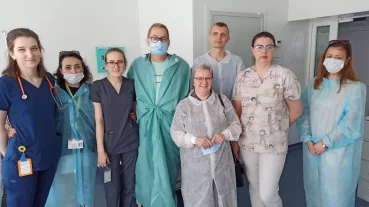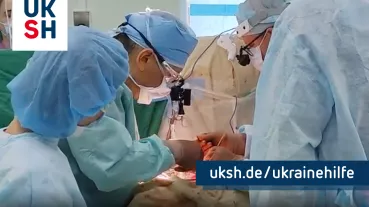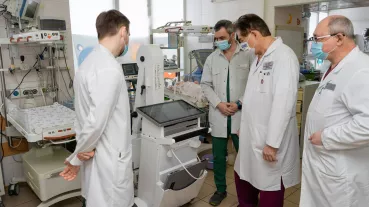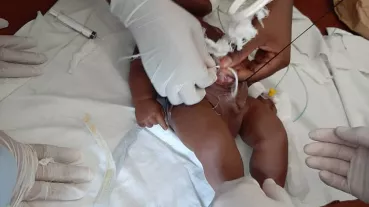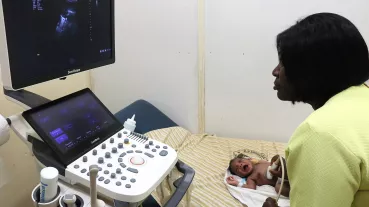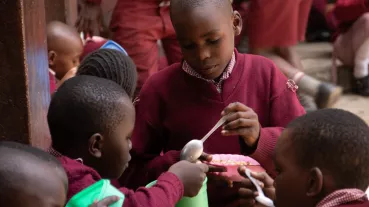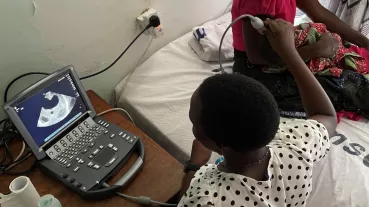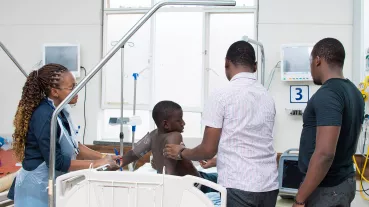Pediatric Training Programme in Sierra Leone
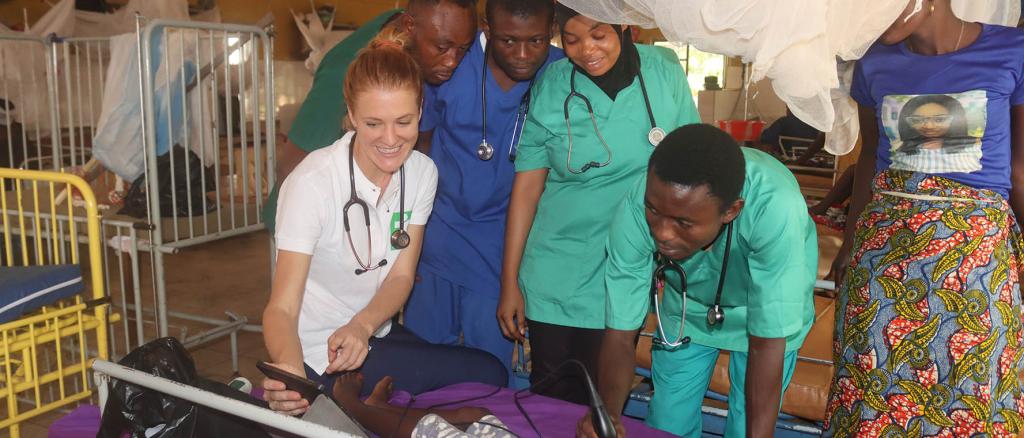
Situation:
In Sierra Leone infant mortality rate and under five mortality rate are among the highest worldwide. Chronic and acute malnutrition in children is frequent. There is a critical shortage of skilled health workers, especially in higher cadres. In the field of pediatrics the current training of CHOs does not fulfil the requirements to provide quality care for sick hospitalized children and neonates.
Objectives:
Increased quality and capacities of pediatric care at (governmental) hospitals in Sierra Leone.
- Number of pediatric trained graduates disaggregated by posting site
- Number of pediatric patients treated by pediatric COs (seen by pediatric CO students) or under their supervision disaggregated by patient age
- Institutional neonatal and u5 mortality rates
- Annual enrolment of new students
- Theoretical modules
- Clinical rotations at partner hospitals
- Supervision of students
- Ultrasound courses
- Dissertation/thesis
- Exams
- Graduations
- Housemenship year
- Retreats with attendance of stakeholders
- Students union meetings
- Promoting the programme and finding additional local trainers
Training paediatric COs is a sustainable approach as a measure of knowledge transfer and generating qualified personnel. GD accompanies this programme with funding until the training of at least 40 students is completed. The Bachelors degree as Clinical Officer is very favourable to Sierra Leone in terms of sustainability, as this position is not recognised in other countries and thus graduating students are most likely to continue their work in Sierra Leone. Of course, the students are aware about this. Thus, the people and the health system in the country will benefit long-term from this project as it contributes to a sustainable improvement in medical care for children and newborns.
Another crucial factor for sustainability is the support by the government: it was developed and is implemented in very close cooperation with MSCS and the MoHS. A Memorandum of Understanding has been signed by all of the partners and the programme is officially affiliated under the University of Sierra Leone as a Bachelors programme. A handing over of the programme to the MoHS is planned as long-term goal.
See Sustainability
Here you can find further information.
